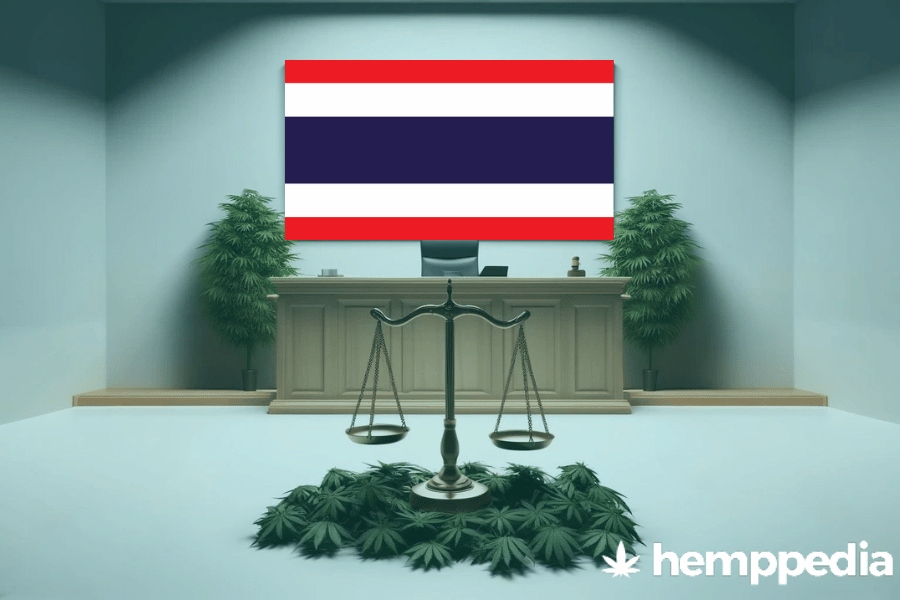Is CBD Legal in Thailand?
TL;DR
In recent years, there’s been a global trend towards the decriminalisation and regulation of cannabis products, including CBD (Cannabidiol). As of 2019, the legal position of CBD in Thailand has significantly relaxed. Now, CBD, when derived from hemp with a THC content of less than 0.2%, is legal. However, it is crucial to understand the legal distinctions between CBD and THC, as well as the necessary qualifications related to the cultivation, use, and sale of CBD.
| CBD aspect | Legal status |
|---|---|
| Possession | Legal (restrictions apply) |
| Usage | Legal (restrictions apply) |
| Selling | Legal (restrictions apply) |
| Cultivation | Legal (restrictions apply) |
Overview of CBD Legislation in Thailand
Key Terms: CBD, or cannabidiol, is a non-intoxicating cannabinoid found in cannabis. Hemp is a cannabis strain that typically has a high CBD and low THC content. THC is the psychoactive component of cannabis.
Legal Landscape: In 2019, Thailand became the first country in Southeast Asia to legalize medical cannabis, thus legalizing CBD ‘products’.
Legal Status: CBD derived from hemp is legal in Thailand but there are restrictions on its THC content. The level of THC should not exceed 0.2%.
Regulatory Bodies: The use and sale of CBD in Thailand is regulated by the Thai Food and Drug Administration and the Narcotics Control Division of the Ministry of Public Health.
Conditions and Restrictions: CBD oils, edibles, and capsules are legal for sale but they must meet specific requirements such as THC content, labeling, and standards of production.
Historical Context
The Thai government amended the Narcotic Act in 2019, which allowed the use of cannabis for medical purposes. The legislation also permits the cultivation of hemp by government agencies, for medical and research purposes only.
Possession, Use, Cultivation and Sales
Although CBD is legal in Thailand, it’s still regulated, and there are restrictions in place, including:
Possession limits: While possession of CBD is legal, the exact amount one can possess has not been specified. As a result, ambiguity in enforcement may occur.
Manufacturing: Production of CBD products is allowed. However, strict quality control measures as per Thai FDA’s guidelines must be met.
Cultivation: Approved entities can cultivate hemp for CBD, but only the seeds and stems can be used. Those growers must be licensed.
Enforcement and Penalties
Penalties for non-compliance with regulations include fines and possible imprisonment. For example, selling CBD oil with a THC content of over 1% could lead to a sentence of up to 15 years in prison.
Comparative Analysis
Unlike some other Southeast Asian countries such as the Philippines or Malaysia, Thailand has been progressive in its approach to CBD legislation. The government is further expected to liberalize its laws on CBD in the near future.
Conclusion
In conclusion, while being more liberal than its neighboring countries, regulations around CBD in Thailand are still strict and controlled. Individuals should ensure to fully understand these requirements before the usage, possession, or cultivation of CBD products. It is expected that the legal framework around CBD products in Thailand and the world will continue to evolve.





